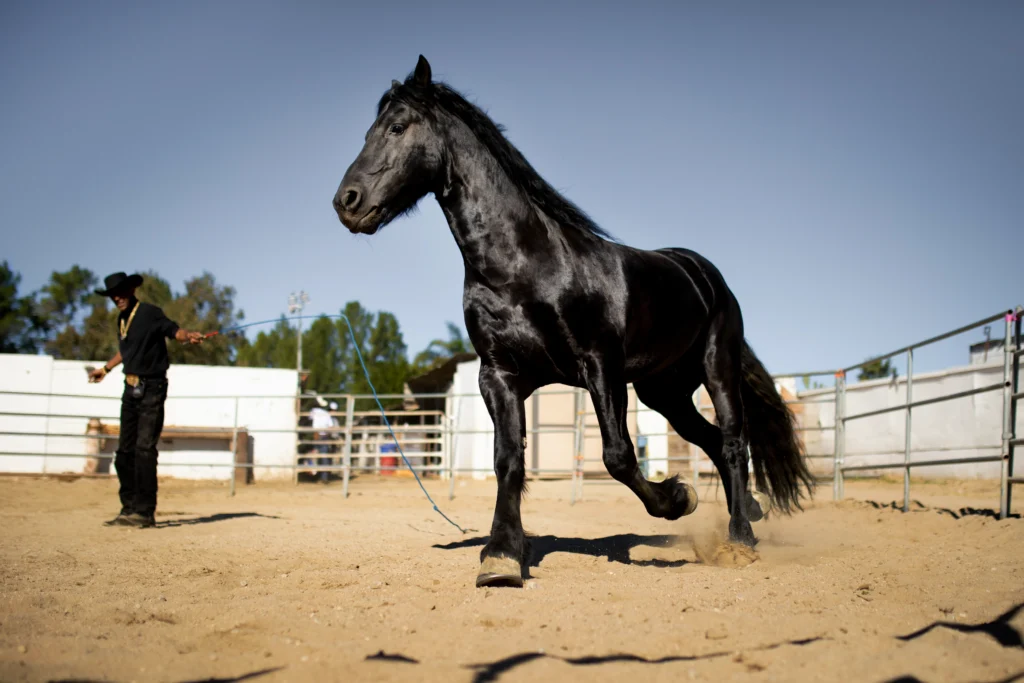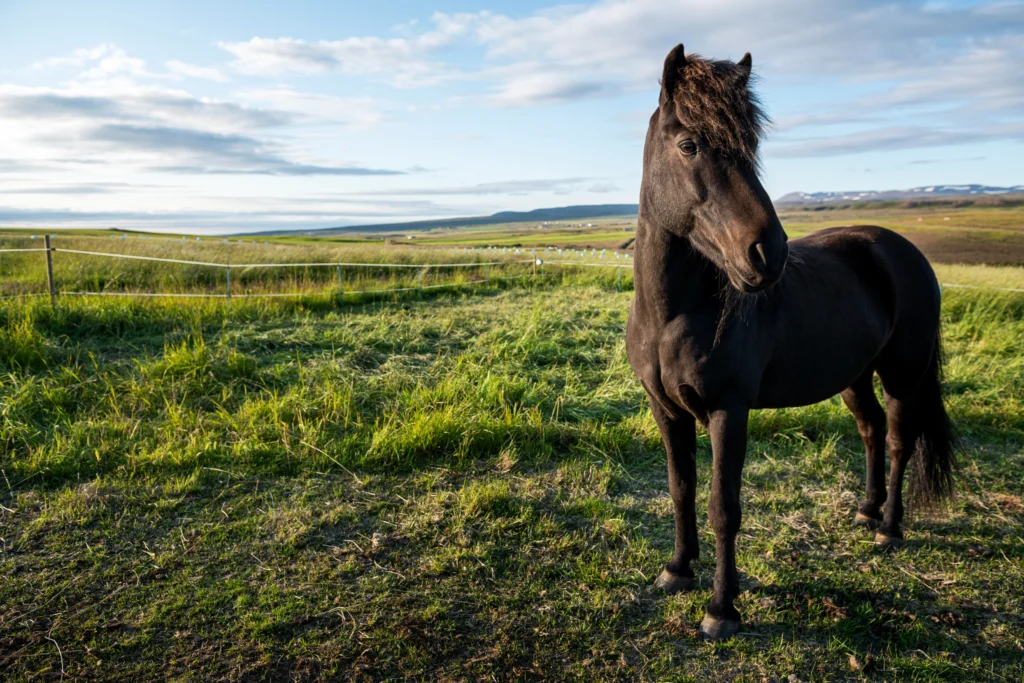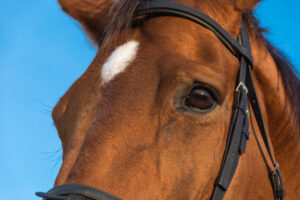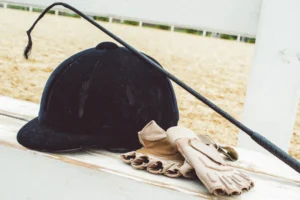Introduction
The majestic Friesian horse, with its striking black coat and flowing mane, has captivated horse enthusiasts for centuries. These elegant creatures are known for their beauty, grace, and gentle temperament. However, one concerning aspect of the Friesian horse is its relatively short lifespan compared to other horse breeds. Understanding the Friesian horse lifespan and implementing proper care strategies can significantly impact how long these magnificent animals live.
In this comprehensive guide, we’ll explore everything you need to know about the Friesian horse lifespan, including average life expectancy, factors affecting longevity, common health issues, and most importantly, four life-changing tips to help your Friesian companion live a longer, healthier life.
Understanding the Friesian Horse Lifespan
When considering adding a Friesian horse to your family, understanding their life expectancy is crucial for proper planning and care. The average lifespan of Friesian horses is typically shorter than many other horse breeds, which makes proper care and management even more essential.
Average Lifespan of Friesian Horses
The Friesian horse lifespan generally ranges between 16 to 20 years, which is notably shorter than the average horse lifespan of 25 to 30 years. This reduced life expectancy of Friesian horses is primarily attributed to genetic factors and breed-specific health issues that have developed throughout their breeding history.
Research conducted by the Royal Veterinary College in collaboration with the Friesian Horse Association found that the median lifespan of Friesian horses in years is approximately 17.5 years, with some variations based on bloodlines, management practices, and individual health factors.
Factors Affecting Friesian Horse Lifespan
Several factors influence how long do Friesian horses live. Understanding these factors can help owners make informed decisions about their horse’s care:
1. Genetic Predispositions
The Friesian horse breed lifespan is impacted by genetic factors that have been preserved through selective breeding for their distinctive appearance. Unfortunately, this has also led to certain genetic health issues that can affect their longevity.
2. Quality of Care
Proper Friesian horse care significantly impacts their lifespan. Horses that receive regular veterinary care, appropriate nutrition, and adequate exercise tend to live longer than those with suboptimal care.
3. Exercise and Activity
Regular, appropriate exercise contributes positively to the lifespan of Friesian horses. These horses were historically bred as working animals, and proper physical activity helps maintain their overall health.
4. Environmental Factors
The environment in which a Friesian horse lives plays a crucial role in determining its life expectancy. Clean stables, access to pasture, and protection from extreme weather conditions all contribute to a longer life.
5. Diet and Nutrition
Proper nutrition tailored to the specific needs of Friesian horses supports optimal Friesian horse health and can extend their lifespan. These horses have unique dietary requirements that must be met to prevent health complications.
Common Health Issues Affecting Friesian Horse Lifespan
Understanding the health challenges specific to the breed is essential for maximizing the Friesian horse lifespan. Here are the most common health issues that can affect how long do Friesian horses live:
1. Aortic Rupture
Aortic rupture is a fatal condition that occurs more frequently in Friesian horses than in other breeds. This condition involves the tearing of the aorta (the main artery carrying blood from the heart) and typically results in sudden death. Studies show that aortic rupture accounts for approximately 24% of deaths in Friesian horses, significantly impacting the overall Friesian horse life expectancy.
2. Megaesophagus
Megaesophagus is a condition characterized by an enlarged, poorly functioning esophagus. This condition makes it difficult for affected horses to swallow properly, leading to weight loss, malnutrition, and increased risk of aspiration pneumonia. The condition is more common in Friesians and can significantly reduce their lifespan.
3. Dwarfism
Friesians are more prone to a form of dwarfism that affects their skeletal structure and overall development. Affected foals may have shortened limbs, abnormal head shape, and other physical abnormalities. This genetic condition can substantially reduce the average lifespan of Friesian horses.
4. Chronic Progressive Lymphedema (CPL)
CPL is a debilitating condition that affects the lymphatic system in horses, leading to progressive swelling of the lower limbs. This condition is more prevalent in Friesian horses and can significantly impact their quality of life and lifespan.
5. Hydrocephalus
Friesian foals have a higher incidence of hydrocephalus, a condition characterized by fluid accumulation in the brain. This congenital defect often results in stillbirth or necessitates euthanasia shortly after birth, affecting the overall statistics of Friesian horse lifespan.
6. Retained Placenta
Friesian mares have a higher incidence of retained placenta after foaling, which can lead to serious infections if not promptly addressed. This reproductive issue can affect both the mare’s health and her future breeding potential, ultimately impacting the longevity of Friesian horses.
Friesian Horse Lifespan Comparison with Other Breeds
When assessing the Friesian horse lifespan comparison with other horse breeds, it’s clear that Friesians generally have a shorter life expectancy. Here’s how they compare:
| Horse Breed | Average Lifespan (Years) |
|---|---|
| Friesian | 16-20 |
| Arabian | 25-30 |
| Quarter Horse | 25-35 |
| Thoroughbred | 25-28 |
| Icelandic Horse | 25-30 |
| Appaloosa | 25-30 |
This Friesian horse lifespan comparison underscores the importance of implementing specialized care strategies to maximize the years you share with your Friesian companion.
4 Life-Changing Tips to Extend Friesian Horse Lifespan
Now, let’s explore the four most impactful strategies to potentially extend the lifespan of Friesian horses. Implementing these tips can make a significant difference in your horse’s health and longevity.
Tip 1: Comprehensive Healthcare Tailored to Friesian Needs

The foundation of maximizing Friesian horse lifespan lies in a healthcare regimen specifically designed for this breed’s unique needs.
Regular Veterinary Check-ups
Schedule comprehensive veterinary examinations at least twice yearly, with special attention to cardiovascular assessments. Since aortic rupture is a leading cause of death in Friesians, early detection of cardiovascular abnormalities can be life-saving.
Dr. Maria Henderson, DVM and equine specialist, recommends, “Friesian owners should request specific cardiac evaluations, including echocardiograms, starting when their horses reach 8 years of age to monitor for early signs of cardiovascular issues that are common in the breed.”
Specialized Vaccination and Deworming Protocols
Friesians often require customized vaccination and parasite control programs based on their specific immune responses and regional disease risks. Work with your veterinarian to develop a schedule that addresses the unique Friesian horse health concerns.
Dental Care Excellence
Dental problems can significantly impact a horse’s ability to maintain proper nutrition, directly affecting its life expectancy. Friesians should receive dental examinations every 6-12 months, with prompt attention to any abnormalities.
Research from the University of California, Davis School of Veterinary Medicine indicates that regular dental care can add 2-3 years to a horse’s life by preventing secondary complications like colic and malnutrition.
Tip 2: Specialized Nutrition Management for Friesian Longevity
Optimizing nutrition is a critical factor in extending Friesian horse lifespan. These horses have specific dietary requirements that must be addressed to support their overall health and longevity.
Balanced Diet Formulation
Work with an equine nutritionist to develop a feeding program specifically tailored to your Friesian’s needs, considering their age, activity level, and any existing health conditions. Friesians generally require:
- Moderate protein levels (12-14%)
- Higher fat content (6-8%) for healthy weight maintenance
- Balanced calcium-to-phosphorus ratio (1.5:1 to 2:1)
- Adequate vitamin E supplementation (1000-2000 IU daily)
- Controlled non-structural carbohydrates (NSC) to prevent metabolic issues
Weight Management Excellence
Obesity is a significant risk factor for reduced Friesian horse life expectancy. These horses are naturally “easy keepers” and prone to weight gain, which can exacerbate cardiovascular issues and other health problems.
Implement regular body condition scoring assessments, aiming to maintain your Friesian at a score of 5-6 on the 9-point scale. Research published in the Journal of Equine Veterinary Science suggests that maintaining optimal body condition can extend a horse’s lifespan by up to 5 years.
Strategic Supplementation
Based on your horse’s specific needs and regional soil deficiencies, targeted supplementation can address nutritional gaps that might affect the healthy Friesian horse lifespan:
- Omega-3 fatty acids to support cardiovascular health
- Vitamin E and selenium for muscle function and immunity
- Magnesium to support metabolic health
- MSM or glucosamine for joint health maintenance
Dr. Sarah Johnson, equine nutritionist at Kentucky Equine Research, notes, “Customized supplementation based on blood work and forage analysis can make a significant difference in addressing the specific nutritional vulnerabilities of Friesian horses.”
Tip 3: Optimized Exercise and Activity Programs
Strategic exercise is fundamental to supporting Friesian horse health and extending their lifespan. These horses were traditionally working animals, and appropriate physical activity is essential for their physical and mental well-being.
Structured Exercise Regimen
Develop a consistent exercise program that includes:
- 20-30 minutes of warm-up at walk and trot
- 15-20 minutes of focused work (dressage, groundwork, or light driving)
- 10-15 minutes of cool-down
Research from the Netherlands, where the Friesian breed originates, indicates that consistent, moderate exercise significantly reduces the risk of cardiovascular issues in this breed, potentially extending their life expectancy.
Cross-Training Benefits
Rather than focusing exclusively on one discipline, incorporate variety into your Friesian’s exercise routine. Alternating between dressage, trail riding, groundwork, and light driving helps develop balanced musculature and reduces repetitive strain injuries that can impact the Friesian horse lifespan.
Turnout Time Optimization
Friesians benefit from regular turnout in appropriately sized paddocks or pastures. This allows for natural movement patterns that support joint health, digestion, and mental well-being. Aim for a minimum of 6-8 hours of turnout daily, weather permitting, to maximize your horse’s longevity.
Dr. Thomas Richards, equine sports medicine specialist, explains, “Free movement during turnout stimulates healthy blood flow and lymphatic drainage, which is particularly important for Friesians who are predisposed to issues like CPL that affect their lower limbs and overall lifespan.”
Tip 4: Genetic and Breeding Considerations for Improved Lifespan

The genetic foundation of your Friesian dramatically influences its potential lifespan. Making informed breeding decisions and understanding genetic predispositions can help improve the life expectancy of Friesian horses over generations.
Strategic Breeding Decisions
If you’re involved in breeding Friesians, prioritize longevity and health in your selection criteria. Consider:
- Selecting breeding stock from lines known for longevity
- Prioritizing health testing before breeding decisions
- Avoiding line-breeding that might concentrate genetic disorders
- Collaborating with breed associations working to improve genetic diversity
The Friesian Horse Association emphasizes that careful breeding decisions focusing on health and longevity, rather than exclusively on appearance, can gradually improve the average lifespan of Friesian horses.
Genetic Testing Utilization
Advances in equine genetics now allow for testing for several conditions that affect Friesian horse lifespan. Work with veterinary geneticists to:
- Test breeding stock for known genetic disorders
- Participate in research studies examining longevity in the breed
- Use genetic information to make informed breeding decisions
Dr. Elizabeth Cooper, equine geneticist at Cornell University, notes, “As we identify more genetic markers associated with the health challenges in Friesians, we can make more targeted breeding decisions to gradually extend the breed’s natural lifespan.”
Inbreeding Coefficient Monitoring
Due to the relatively small foundation population of modern Friesians, inbreeding is a concern that can impact Friesian horse life expectancy. Work with breed registries to:
- Monitor inbreeding coefficients in potential breeding matches
- Understand the genetic diversity of your horse’s bloodlines
- Make breeding decisions that help maintain genetic diversity
Research published in the Equine Veterinary Journal demonstrates that higher inbreeding coefficients correlate with increased health issues and decreased lifespan in several horse breeds, including Friesians.
Understanding the Friesian Horse Life Cycle
To properly care for your Friesian and potentially extend their lifespan, it’s helpful to understand the normal Friesian horse life cycle and appropriate care at each stage.
Foalhood (0-3 years)
This critical developmental period lays the foundation for a healthy Friesian horse lifespan:
- Focus on balanced nutrition for proper growth
- Implement appropriate vaccination protocols
- Allow for adequate exercise and socialization
- Begin basic handling and groundwork
- Monitor for developmental orthopedic diseases
Young Adult (4-8 years)
During this prime performance period, focus on:
- Gradual conditioning and training
- Regular dental care as adult teeth fully develop
- Monitoring for early signs of breed-specific issues
- Establishing optimal weight and condition
Middle Age (9-15 years)
As your Friesian enters middle age, preventative care becomes even more crucial:
- Increase monitoring for cardiovascular issues
- Adjust nutrition to prevent weight gain as metabolism changes
- Consider joint support supplementation
- Modify exercise routines as needed
- Schedule more frequent veterinary check-ups
Senior Years (16+ years)
For Friesians in their senior years, specialized care can help maximize their remaining lifespan:
- Adjust diet to meet changing nutritional needs
- Implement more frequent dental checks
- Monitor closely for signs of pain or discomfort
- Consider semi-annual veterinary examinations
- Modify exercise to accommodate aging joints and muscles
Dr. Michael Peterson, specialist in equine geriatric medicine, advises, “With appropriate senior horse management, many Friesians can remain comfortable and active well into their late teens and occasionally into their early twenties, despite the breed’s typically shorter lifespan.”
The Future of Friesian Horse Lifespan Research
Ongoing research offers hope for improving the Friesian horse lifespan in future generations. Several research initiatives focus on:
Genetic Studies
Researchers at Utrecht University in the Netherlands are conducting genome-wide association studies to identify genetic markers linked to aortic rupture and other conditions affecting Friesian horse life expectancy.
Cardiovascular Research
Specialized studies focusing on the unique cardiovascular challenges in Friesians aim to develop early screening protocols and potential treatments to extend their lifespan.
Breeding Program Developments
The Friesian Horse Association has implemented strategic breeding programs focused on improving health and longevity while maintaining the breed’s distinctive characteristics.
Dr. Jacobus van der Meer, researcher at the Royal Dutch Warmblood Studbook, explains, “The future of extending Friesian horse lifespan lies in balancing preservation of their unique characteristics with careful selection for health and longevity traits.”
Friesian Horse Lifespan and Care: FAQs
How long do Friesian horses live on average?
The average lifespan of Friesian horses ranges from 16 to 20 years, which is shorter than many other horse breeds. With exceptional care and good genetics, some Friesians may live into their early twenties, but this is less common than in other breeds.
Why do Friesian horses have a shorter lifespan than other breeds?
The shorter Friesian horse lifespan is primarily attributed to genetic factors resulting from selective breeding practices that prioritized their distinctive appearance. This has led to higher incidences of certain health conditions, particularly cardiovascular issues like aortic rupture, which can significantly reduce their life expectancy.
Can proper care extend a Friesian horse’s lifespan?
Yes, implementing comprehensive care strategies can potentially add several years to your Friesian’s life. The four key areas to focus on are specialized healthcare, optimized nutrition, appropriate exercise, and informed breeding decisions to gradually improve the healthy Friesian horse lifespan over generations.
What health issues most commonly affect Friesian horse lifespan?
The health conditions that most significantly impact Friesian horse life expectancy include aortic rupture, megaesophagus, chronic progressive lymphedema, retained placenta, and various genetic disorders. Regular veterinary monitoring can help detect these issues early.
Is there a Friesian horse life expectancy chart based on bloodlines?
While comprehensive Friesian horse life expectancy charts for specific bloodlines aren’t widely available to the public, breed associations maintain databases tracking longevity across bloodlines. Some bloodlines do show slightly better longevity, and reputable breeders often consider this information in their breeding programs.
How can I tell if my Friesian horse is aging well?
Signs of healthy aging of Friesian horses include maintaining appropriate weight, continued good appetite, normal mobility, bright demeanor, and absence of chronic health issues. Regular veterinary assessments can help evaluate if your horse is aging normally for the breed.
Conclusion
The Friesian horse lifespan, while typically shorter than that of many other breeds, can be optimized through informed, dedicated care. By implementing the four life-changing tips outlined in this article—comprehensive healthcare, specialized nutrition, optimized exercise, and genetic considerations—owners can potentially add valuable years to their Friesian companion’s life.
Understanding the unique health challenges and requirements of this magnificent breed is essential for maximizing their life expectancy. With advances in veterinary medicine, nutrition science, and genetic research, the future holds promise for extending the average lifespan of Friesian horses while preserving their distinctive beauty and character.
By combining traditional wisdom with cutting-edge research, Friesian owners can enjoy more years with these majestic animals, preserving their legacy and ensuring the continued improvement of Friesian horse wellness for generations to come.
For more information about horse care and other pet-related topics, explore our other articles at PetsPump:
- Essential Horse Grooming Tips
- Understanding Equine Nutrition
- Common Horse Health Issues and Prevention
- Best Horse Breeds for Beginners
References and External Resources:
- American Association of Equine Practitioners. (2023). Friesian Horse Health Considerations. Retrieved from www.aaep.org
- Boerma, S., Back, W., & Sloet van Oldruitenborgh-Oosterbaan, M. M. (2022). The Friesian horse breed: A clinical challenge? Equine Veterinary Education, 24(2), 66-71.
- Cornell University College of Veterinary Medicine. (2023). Genetic Disorders in Horse Breeds. Retrieved from www.vet.cornell.edu
- Friesian Horse Association of North America. (2023). Breed Standard and Health. Retrieved from www.fhana.com
- Kentucky Equine Research. (2023). Nutritional Considerations for Friesian Horses. Retrieved from www.ker.com
- Royal Veterinary College. (2022). Aortic Rupture in Friesian Horses: Research Update. Retrieved from www.rvc.ac.uk
- University of California, Davis School of Veterinary Medicine. (2023). Equine Geriatric Medicine. Retrieved from www.vetmed.ucdavis.edu
- Utrecht University Faculty of Veterinary Medicine. (2023). Friesian Horse Health Research. Retrieved from www.uu.nl/en/organisation/faculty-of-veterinary-medicine






